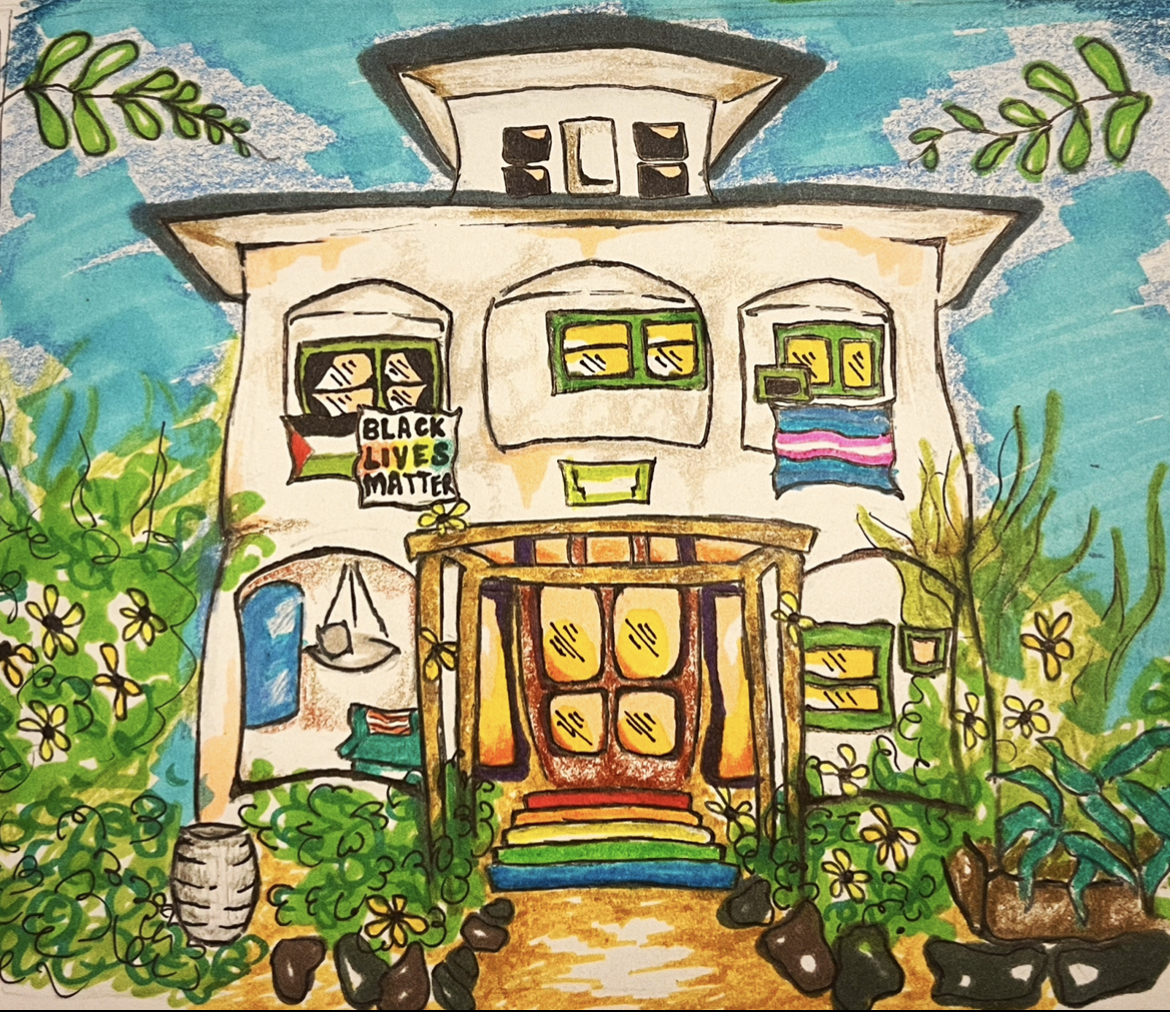When I first moved into a housing co-op, I was a senior still chasing after the sense of belonging that Hollywood and my family had led me to believe I should be experiencing during the “best years of my life.” Now, as I prepare to move out, I can say I was lucky enough to find something at the co-op that had eluded me for quite some time at UT: a genuine sense of belonging.
Students seeking community at UT should consider co-op living because of their collaborative, inclusive atmosphere.
The isolation I felt is not rare. According to a 2022 survey by the American College Health Association, 53% of college students reported that they are struggling with feelings of loneliness, a factor linked to a student’s success. A quick browse of UT’s subreddit, r/UTAustin, reveals dozens of student testimonies on the lack of belonging they feel on UT’s large campus.
Co-ops provide a solution. The tight-knit communities of these member-run houses make them great places to meet new people and build strong connections at UT.
The collaborative nature of co-ops distinguishes them from other student housing options. While the rules and house culture varies between co-ops, residents are typically expected to contribute a few hours of labor each week by cleaning communal spaces, cooking shared meals and lending a hand to keep the house running.
When looking back at their time in the co-ops, many former residents value the sense of community as the most cherished aspect of co-op living.
“My best friends in life (were) co-opers,” Brandon Chicotsky, a UT alumnus, said nearly 20 years after moving out of 21st Street Co-Op.
After hearing about co-ops as a freshman at UT in 2003, Chicotsky immediately knew he wanted to move in.
“I knew I was joining a community,” Chicotsky said.
There are often misconceptions that deter many students from considering living in co-ops. Unfortunately, most students’ exposure to co-ops is limited to the parties hosted by some houses, leading to an inaccurate perception of co-op life.
“Every gathering of 100 college students from different majors and backgrounds can gain a reputation at UT Austin as a part of the party environment. In reality, the majority of (these) students are very studious and ambitious” Chicotsky said.
Writing off co-ops as “party houses” downplays their social benefits and deters students who might otherwise benefit from the essential sense of community and belonging they provide.
Though initially drawn to co-op living for its affordability, Brigitte Gill, a philosophy graduate student, has also discovered a strong sense of community at French House Co-Op.
“People are hanging out in the common areas and making an effort to meet each other,” Gill said. “There’s pretty much always somebody around to talk to you whenever you’re feeling social.”
French House is one of the 16 communal living cooperatives offered by the Inter-Cooperative Council and College Houses, the two largest cooperatives in West Campus. Residents of both organizations are required to be enrolled in a local college or university at least part-time, so students are living among their peers.
“It’s definitely made me feel more belonging as like a student in the city,” Gill said. “It’s kind of solidified my sense of being a student here.”
By moving into a co-op, I found a home. We cook together, eat together, clean, laugh, cry and do absolutely nothing together. I can’t remember how I ever lived another way.
As I pack my life into boxes yet again, I find solace in Chicotsky’s words: “You can put us anywhere in the world, and you’re still a co-oper.”
Chowdhury is an international relations and global studies senior from Spring, TX.














